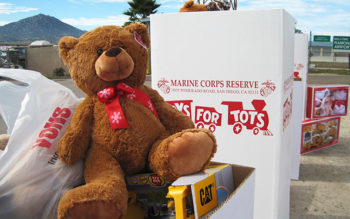“I’m going to need to ask you a lot of questions,” Ruff said stoically.
“Whatever I need to do to get him back.”
They sat at the kitchen table.
Ruff gave the mother pamphlets on the child welfare system and explained his role.
Then the interview began. Ruff asked how long the mother had lived in the apartment.
The woman, seemingly responding to Ruff’s professional and calm mien herself grew more collected. She explained that she and her boyfriend, the baby’s father, had moved to San Diego from Northern California about a month earlier, for a better life.
“How so?” Ruff asked.
Her father was in San Diego, her boyfriend could find work here, and they would leave behind the “negative people” up north, the woman explained. Friends who used drugs.
The woman said she’d used meth on and off since she was 14 and had gone through a court-ordered treatment program 10 years earlier, after her only arrest. A high-school dropout, she said she was currently unemployed but had worked as an administrative assistant and bookkeeper.
She had intended to stay off meth during her pregnancy, but ended up smoking the drug about 10 times, feeling “guilty” each time after she did, the mother said.
Throughout the interview, Ruff spoke calmly and chose his words carefully, maintaining eye contact with the mother and listening to her closely. He was polite and direct, but he didn’t reassure, make promises, or even change his expression to indicate empathy.
Later, he would explain that he always tries to be honest with people about where their case stands. Giving false hope through an exaggerated show of understanding doesn’t help families understand the steps they’ll need to take to be reunited with their children.
Ruff asked if the woman’s boyfriend knew about her meth use during the pregnancy.
No, she hid it, she said. Ruff would later interview the baby’s father who was sleeping upstairs after working the graveyard shift at his warehouse job. He would also say his girlfriend’s meth use was a surprise and agreed to take a drug test himself. This test was part of an evaluation to show Ruff and the Juvenile Dependency Court judge whether the child’s father might be a good custodial parent.
Ruff asked the woman who else lives in the apartment. The woman says her brother lived there too, but he “hates her.”
Outside on the balcony, both grandmothers leaned on a rail and gazed into the yard, giving the mother and Ruff privacy. They had come from out of town for their grandson’s birth but were now grappling with the unexpected, unhappy developments and the baby’s absence.


